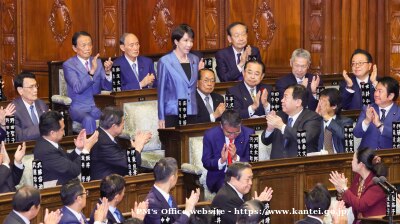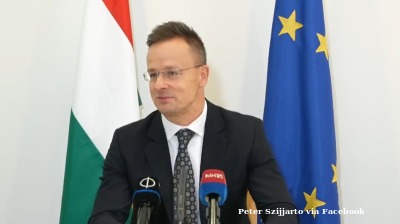The European Parliament on October 4 approved the European Media Freedom Act, which is aimed at guaranteeing greater press freedom in the member states and limiting distorting state advertising. The legislation aims to ensure media plurality and protect media independence from governmental, political, economic or private interference.
The bill was approved with an overwhelming majority, 448 in favour, 102 against and 75 abstained.
Speaking to Politico after the vote, European Commission Vice President Vera Jourova said media law will be "a major warning signal" for EU countries and could well turn into a thorn in the side of the Hungarian leader Viktor Orban
"We cannot unscramble the scrambled eggs [in Hungary]," Jourova said, in a country "where everything and everybody is dependent on one party", where "there is no public media but state media" and where "the difference between supporting a media economically in a transparent way and a corrupted media in a hidden way is big".
Under Viktor Orban’s 13-year rule, Hungary's media
With the government’s help, 500 pro-government media outlets owned formerly by the prime minister’s cronies were concentrated in a foundation (KESMA)
The media conglomerate operates with vast financial state funding, as advertising revenues favour pro-government outlets. Independent media maintain strong positions in other segments of the national market but are threatened by the discriminatory allocation of state funding.
State media has always been a battleground of parties, but it became a mouthpiece of the government after Orban’s second supermajority in 2014. The news departments, from TV to radio to the national news agency (MTI), have been perfectly subjugated by the government in recent years, with content often aligned with the government’s political interests.
During the last election, the opposition’s joint prime minister was given five minutes of airtime in the campaign.
To assess media independence, Parliament wants to oblige all media, including micro-enterprises, to publish information on their ownership structure.
Members also want media, including online platforms and search engines, to report on funds they receive from state advertising and on state financial support. This includes funds from non-EU countries.
The bill proposes imposing a limit on the share of public advertising that can be allocated to a single media provider, online platform, or search engine within an EU member state, capping it at 15% of the total advertising budget allocated by the respective authority. MEPs advocate for full transparency in the criteria used for distributing public funds to media organisations, making these criteria publicly accessible.
A new independent EU body, the European Board for Media Services, would be created. MEPs also push for an independent "expert group", representing the media sector and civil society, to advise the board.
The EP will kick off negotiations with the European Council on the legislation.
News

Taiwan confirms first African swine fever outbreak
Authorities detected the virus on a pig farm in Wuqi District, Taichung, after 117 pigs died between October 10 and 20.

Afghanistan withdraws from Pakistan tri-nation T20 to protest murder of three local cricketers
The Afghanistan Cricket Board says it has secured clear video footage implicating the Pakistan state in an attack that killed three local cricketers.

Sanae Takaichi makes history as Japan’s first female prime minister
In her first press briefing as leader, the 64-year-old pledged to drive reform with confidence and determination, describing her administration as one “ready to decide and move forward.”

White House halts plans for Trump-Putin summit in Budapest
Anonymous White House official tells AFP there are “no plans” for Trump to meet Putin “in the immediate future”, effectively shelving a Budapest gathering that Trump had described as imminent only days earlier.




